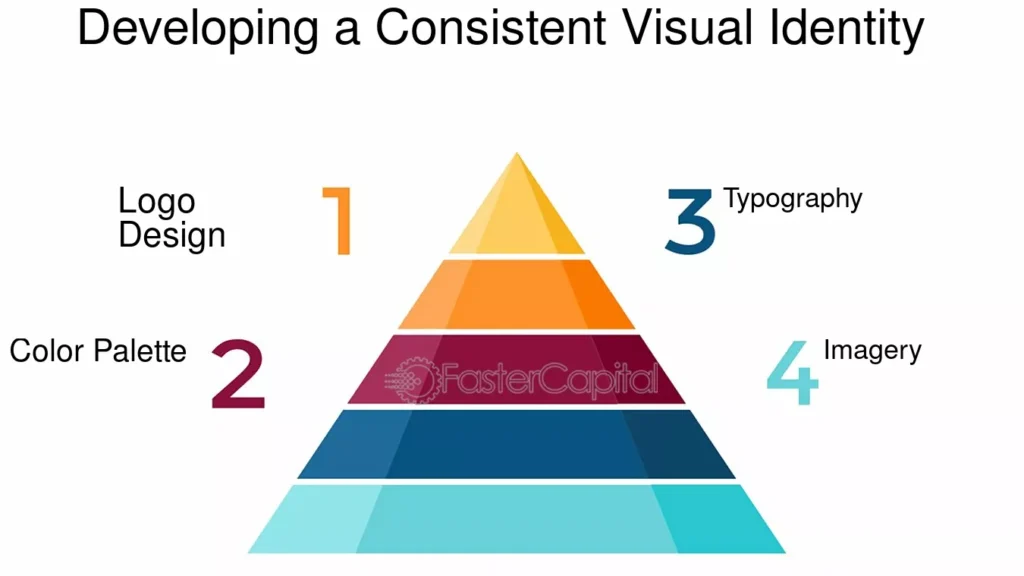Strategies for Effective Online Brand Building
In the digital age, establishing a robust online brand is essential for businesses aiming to stand out and connect with their target audience. With the vastness of the internet, it’s crucial to employ effective strategies that not only increase visibility but also foster trust and loyalty among consumers. This article delves into five powerful strategies to build and enhance your online brand.
1. Define Your Brand Identity
Before venturing into the digital realm, it’s imperative to have a clear understanding of your brand’s identity. This encompasses your brand’s mission, values, and unique selling propositions (USPs). A well-defined brand identity serves as the foundation upon which all other branding efforts are built. It ensures consistency across all platforms and communications, making it easier for your audience to recognize and relate to your brand.
To define your brand identity:
- Articulate your brand’s mission and vision.
- Identify your target audience and understand their needs.
- Determine what sets your brand apart from competitors.
- Develop a brand persona that reflects your brand’s personality.
2. Develop a Consistent Visual Identity

Visual elements play a pivotal role in brand recognition. A consistent visual identity, including logos, color schemes, typography, and imagery, helps in creating a cohesive brand experience across all digital platforms. This consistency not only makes your brand more recognizable but also builds trust with your audience.
To establish a consistent visual identity:
- Create a brand style guide detailing visual elements.
- Ensure uniformity in design across your website, social media, and marketing materials.
- Use high-quality images that align with your brand’s aesthetic.
3. Leverage Content Marketing
Content is king in the digital world. Producing high-quality, relevant, and engaging content can position your brand as an authority in your industry. Content marketing not only helps in educating your audience but also in building trust and fostering relationships.
Effective content marketing strategies include:
- Blogging: Share informative articles that address your audience’s pain points.
- Video Content: Create engaging videos that showcase your products or services.
- Infographics: Use visually appealing infographics to simplify complex information.
- Podcasts: Host discussions on industry trends and insights.
4. Engage with Your Audience on Social Media
Social media platforms are powerful tools for building and nurturing relationships with your audience. Active engagement on platforms like Instagram, Facebook, LinkedIn, and Twitter allows you to connect with your audience, gather feedback, and humanize your brand.
Tips for effective social media engagement:
- Post regularly and at optimal times.
- Respond promptly to comments and messages.
- Share user-generated content to build community.
- Run interactive sessions like polls, Q&As, and live streams.
5. Collaborate with Influencers

nfluencer marketing has emerged as a potent strategy for expanding brand reach and credibility. Partnering with influencers who align with your brand’s values can introduce your products or services to a broader audience.
When collaborating with influencers:
- Choose influencers whose audience matches your target demographic.
- Ensure the influencer’s values align with your brand’s ethos.
- Set clear objectives and expectations for the partnership.
- Monitor and measure the effectiveness of the campaign.
6. Utilize User-Generated Content
User-generated content (UGC) refers to content created by consumers that showcases their experiences with your brand. UGC serves as authentic testimonials that can influence potential customers’ purchasing decisions.
To leverage UGC:
- Encourage customers to share their experiences on social media.
- Feature UGC on your website and social media platforms.
- Run campaigns or contests that motivate customers to create content.
- Always credit the original creators to foster goodwill.
7. Implement Search Engine Optimization (SEO)
SEO is crucial for enhancing your online visibility. By optimizing your website and content for search engines, you increase the chances of appearing in relevant search results, driving organic traffic to your site.
SEO best practices include:
- Conducting keyword research to identify relevant terms.
- Optimizing on-page elements like titles, meta descriptions, and headers.
- Creating high-quality, informative content that addresses user intent.
- Building backlinks from reputable sites to boost domain authority.
8. Monitor and Analyze Performance
Regularly tracking and analyzing your branding efforts allows you to understand what’s working and where improvements are needed. Utilizing analytics tools can provide insights into audience behavior, content performance, and conversion rates.
Key metrics to monitor:
- Website traffic and user behavior.
- Engagement rates on social media platforms.
- Conversion rates and sales data.
- Customer feedback and satisfaction levels.
9. Offer Exceptional Customer Service
Providing outstanding customer service is integral to maintaining a positive brand reputation. Promptly addressing customer inquiries and resolving issues can lead to increased customer satisfaction and loyalty.
Tips for excellent customer service:
- Offer multiple channels for customer support (e.g., chat, email, phone).
- Train staff to handle inquiries professionally and empathetically.
- Follow up with customers to ensure their issues are resolved.
- Use feedback to continuously improve your services.
10. Stay Authentic and Transparent
Authenticity and transparency are vital in building trust with your audience. Being honest about your products, services, and business practices fosters credibility and long-term relationships with customers.
Ways to maintain authenticity:
- Share behind-the-scenes content that showcases your brand’s values.
- Be open about challenges and how you’re addressing them.
- Communicate openly about product sourcing and manufacturing processes.
- Engage in ethical marketing practices that prioritize customer well-being.
Conclusion
Building a strong online brand requires a strategic approach, consistency, and genuine engagement with your audience. By defining your brand identity, maintaining visual consistency, leveraging content marketing, engaging on social media, collaborating with influencers, utilizing user-generated content, implementing SEO, monitoring performance, offering exceptional customer service, and staying authentic, you can establish a robust online presence that resonates with your target audience and drives business success.



